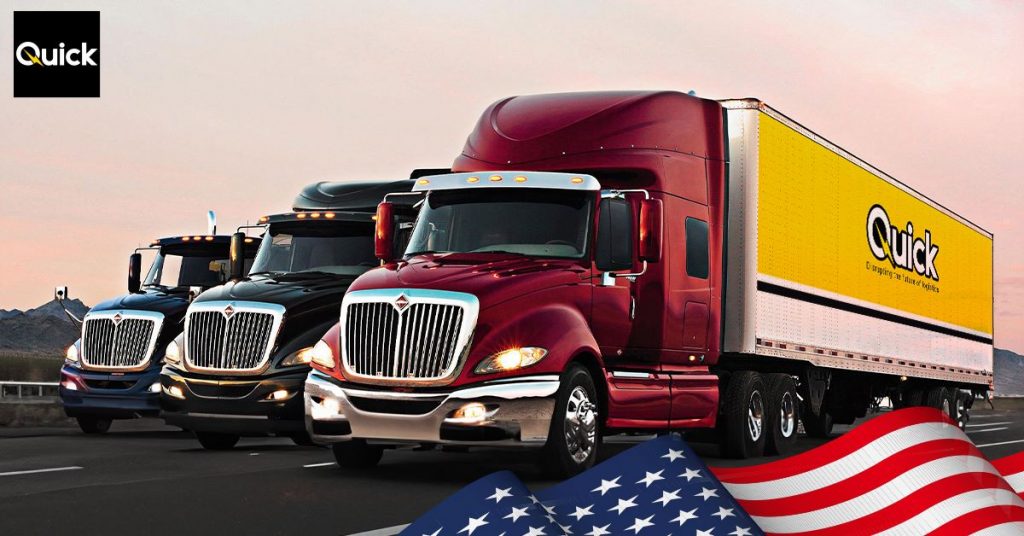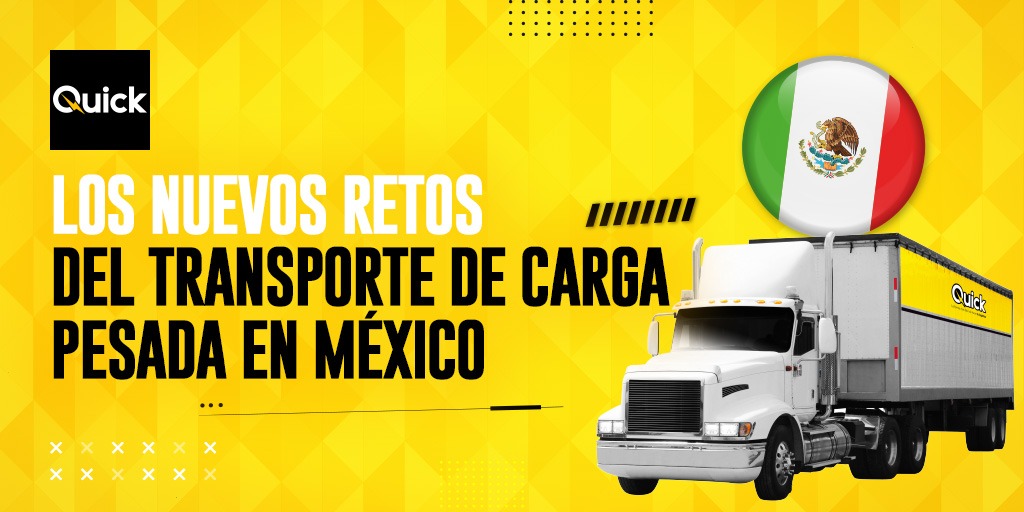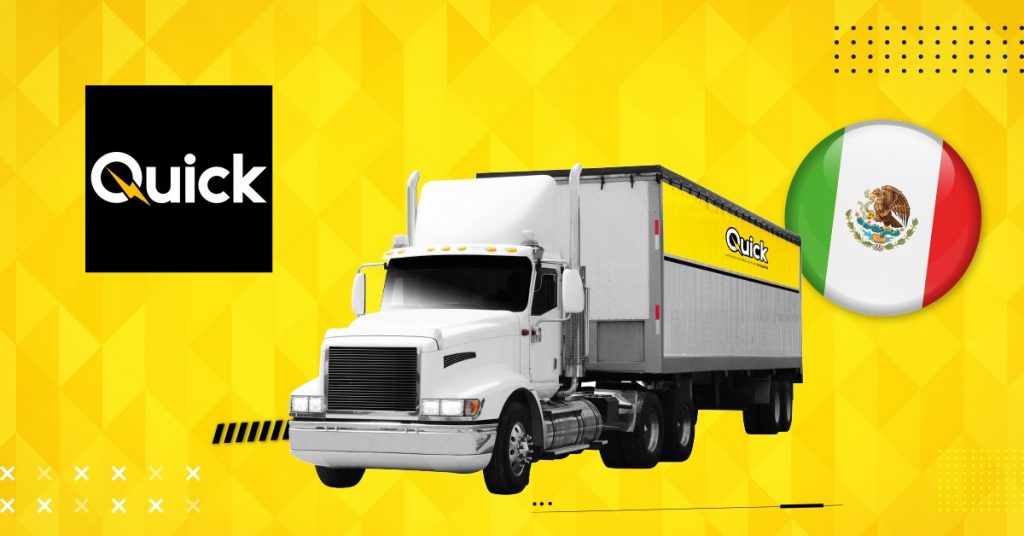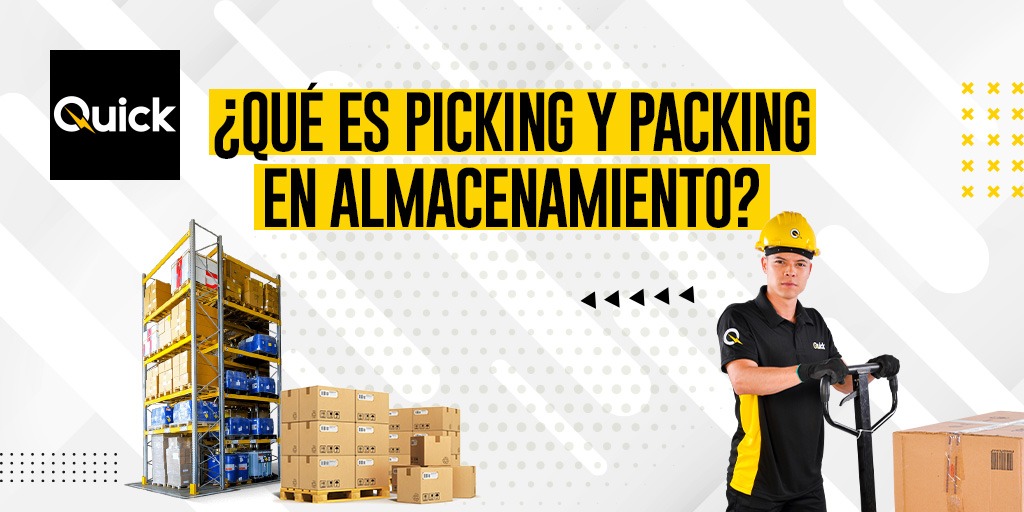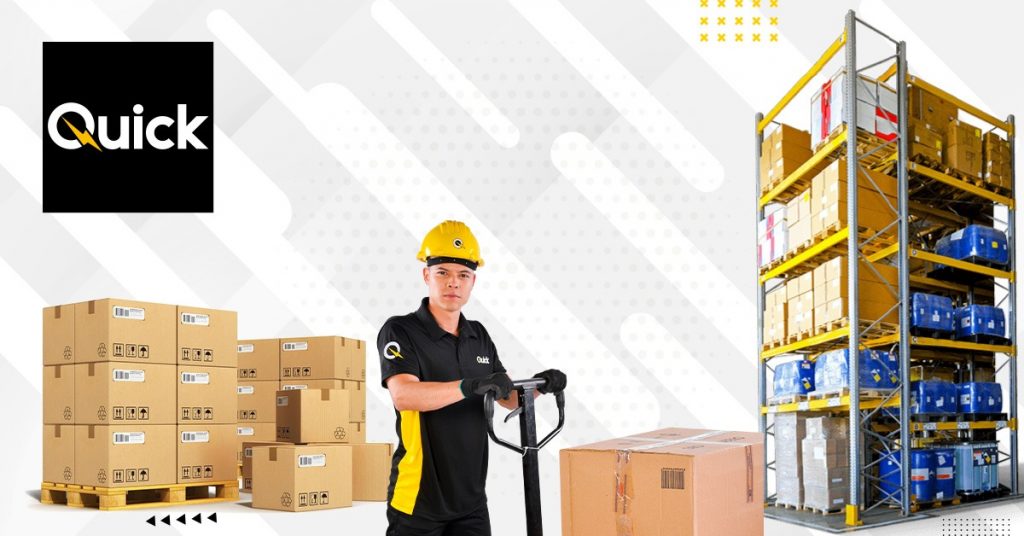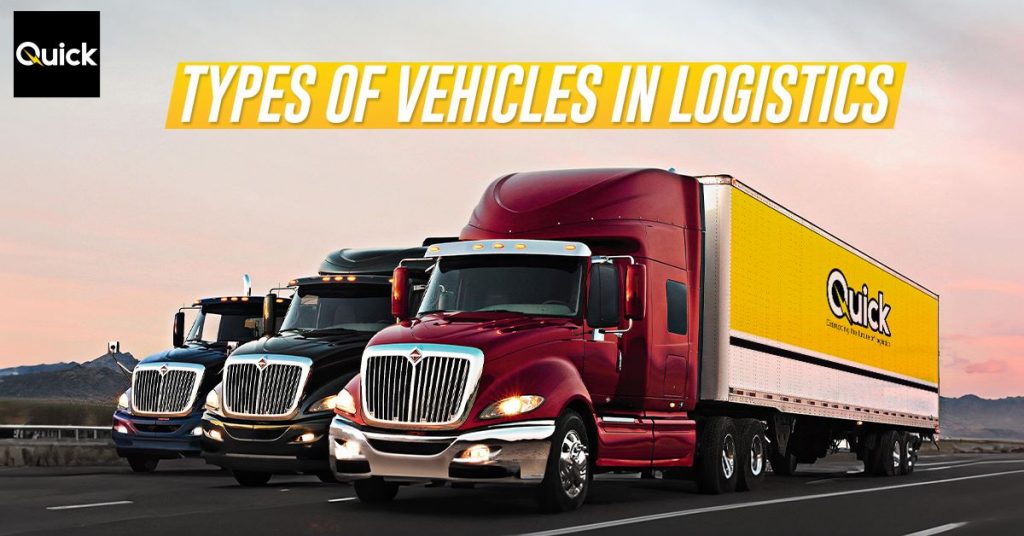
In Miami, as in other trade centers where imports and exports to other countries are handled, there is a multiplicity of logistics services; this is why interstate transportation and distribution has vehicles for all needs. In the following article we will see what they are, their characteristics and advantages, so you can choose the one that will optimize your logistics.
Dedicated vehicles in logistics
Dry freight trucks
This type of trucks have different capacities and are used to deliver packages and goods in urban and suburban areas. They are especially useful for first-mile distribution, as they can access narrow streets and facilitate delivery to distribution centers.
Dry freight trucks are highly versatile and can transport a wide variety of goods, from boxed products and pallets to bulk materials. These types of vehicles have excellent protection against inclement weather, as well as excellent door and lock security.
Finally, these types of trucks usually have a high load capacity compared to other vehicles, allowing them to transport large volumes of goods.
Refrigerated cargo trucks
Refrigerated cargo trucks, also known as refrigerated trucks or refrigerated trucks, offer a number of significant advantages in the transportation of temperature-sensitive goods, as they are equipped with refrigeration systems, which make them capable of maintaining the cold chain.
By maintaining a constant and controlled temperature, refrigerated trucks ensure that temperature-sensitive products retain their freshness, flavor, nutritional value and visual appearance during transport. This is especially important over long distances or in hot climates where high temperatures can adversely affect products.
Refrigerated trucks also enable the distribution of perishable products over long distances, even across international borders. This expands marketing possibilities and the ability to reach different markets.
Full truck load (FTL) tractor trailers
These vehicles are used to transport large loads over long-distance highways. Since they are dedicated to full truckload transport (FTL), they occupy the full capacity of the trailer and offer improved cost efficiency.
With this type of vehicle, the cost of transportation can be spread over a larger quantity of products, resulting in a lower cost per unit load compared to LTL (less-than-truckload).
FTL trucks offer faster transit times than ocean or rail. In addition, being a direct service, the truck can go directly from the loading location to the unloading location without having to make intermediate stops to load or unload other goods.
Less than truckload (LTL) trucks
LTL trucks allow the cost of the truck and trip to be shared among multiple loads from different customers. This can result in a lower cost compared to full truckload (FTL) trucking where the entire trailer is occupied.
These types of trucks also allow shippers to ship smaller loads without having to hire a full truck. This provides flexibility in terms of capacity, while increasing the frequency of pickup and delivery, and decreasing the risk of wasted space.
Finally, LTL trucks can reach more remote or less accessible areas compared to FTL transportation, because multiple loads from different shippers and receivers are combined, LTL carriers can deliver to more remote and less densely populated locations.
Dry van
Dry van containers attach to tractor-trailers and can be used for a wide variety of cargoes, as they are airtight. In addition, they generally range in size from 6 to 12 meters.
Like trucks and vans for dry cargo, dry vans are extremely versatile and can transport boxed goods, pallets, bulk materials, packaged goods, textiles, household appliances and more. Their protection against rain, dust and dirt also makes them one of the most used options by carriers.
Dry vans are the most common trailers, which means that there are many of them in circulation and a wide range of transportation services using this type of vehicles, which ultimately facilitates their hiring and availability.
At Quick we have a large and varied fleet of vehicles for distribution and transportation from Miami. Now that you know what type of vehicle suits your merchandise, it is time to choose the fastest logistics partner in the United States, choose Quick.
Tipos de vehículos en logística
En Miami, como en otros centros de comercio donde se manejan importaciones y exportaciones a otros países, existen multiplicidad de servicios logísticos; es por esto que el transporte interestatal y la distribución cuenta con vehículos para todas las necesidades. En el siguiente artículo veremos cuáles son, sus características y ventajas, para que puedas elegir el que más optimizará tu logística.
Vehículos dedicados
Camiones para carga seca
In Miami, as in other trade centers where imports and exports to other countries are handled, there is a multiplicity of logistics services; this is why interstate transportation and distribution has vehicles for all needs. In the following article we will see what they are, their characteristics and advantages, so you can choose the one that will optimize your logistics.
Dedicated vehicles in logistics
Dry freight trucks
This type of trucks have different capacities and are used to deliver packages and goods in urban and suburban areas. They are especially useful for first-mile distribution, as they can access narrow streets and facilitate delivery to distribution centers.
Dry freight trucks are highly versatile and can transport a wide variety of goods, from boxed products and pallets to bulk materials. These types of vehicles have excellent protection against inclement weather, as well as excellent door and lock security.
Finally, these types of trucks usually have a high load capacity compared to other vehicles, allowing them to transport large volumes of goods.
Refrigerated cargo trucks
Refrigerated cargo trucks, also known as refrigerated trucks or refrigerated trucks, offer a number of significant advantages in the transportation of temperature-sensitive goods, as they are equipped with refrigeration systems, which make them capable of maintaining the cold chain.
By maintaining a constant and controlled temperature, refrigerated trucks ensure that temperature-sensitive products retain their freshness, flavor, nutritional value and visual appearance during transport. This is especially important over long distances or in hot climates where high temperatures can adversely affect products.
Refrigerated trucks also enable the distribution of perishable products over long distances, even across international borders. This expands marketing possibilities and the ability to reach different markets.
Full truck load (FTL) tractor trailers
These vehicles are used to transport large loads over long-distance highways. Since they are dedicated to full truckload transport (FTL), they occupy the full capacity of the trailer and offer improved cost efficiency.
With this type of vehicle, the cost of transportation can be spread over a larger quantity of products, resulting in a lower cost per unit load compared to LTL (less-than-truckload).
FTL trucks offer faster transit times than ocean or rail. In addition, being a direct service, the truck can go directly from the loading location to the unloading location without having to make intermediate stops to load or unload other goods.
Less than truckload (LTL) trucks
LTL trucks allow the cost of the truck and trip to be shared among multiple loads from different customers. This can result in a lower cost compared to full truckload (FTL) trucking where the entire trailer is occupied.
These types of trucks also allow shippers to ship smaller loads without having to hire a full truck. This provides flexibility in terms of capacity, while increasing the frequency of pickup and delivery, and decreasing the risk of wasted space.
Finally, LTL trucks can reach more remote or less accessible areas compared to FTL transportation, because multiple loads from different shippers and receivers are combined, LTL carriers can deliver to more remote and less densely populated locations.
Dry van
Dry van containers attach to tractor-trailers and can be used for a wide variety of cargoes, as they are airtight. In addition, they generally range in size from 6 to 12 meters.
Like trucks and vans for dry cargo, dry vans are extremely versatile and can transport boxed goods, pallets, bulk materials, packaged goods, textiles, household appliances and more. Their protection against rain, dust and dirt also makes them one of the most used options by carriers.
Dry vans are the most common trailers, which means that there are many of them in circulation and a wide range of transportation services using this type of vehicles, which ultimately facilitates their hiring and availability.
At Quick we have a large and varied fleet of vehicles for distribution and transportation from Miami. Now that you know what type of vehicle suits your merchandise, it is time to choose the fastest logistics partner in the United States, choose Quick.
